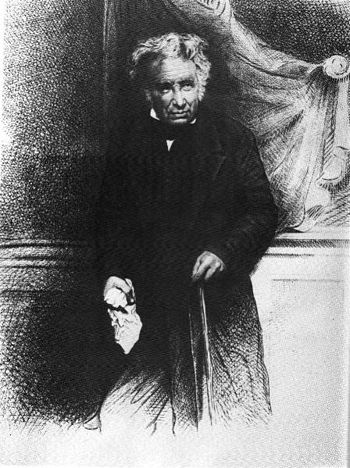| Mouzinho da Silveira, whose influence during the post-War era would result in changes to the economy, the separation of church and state and the reorganization of municipalities (Photo credit: Wikipedia) |
Why do I ask? From what I see on the Internet these days, many atheists would rather talk about Ferguson, ice buckets, Gaza, ISIS, transphobia and trans-exclusionary radical feminists (TERFs), whatever Richard Dawkins recently said on Twitter, who said what about various bloggers at the Slyme Pit, and a host of other subjects. To be clear, I'm not saying that there isn't still plenty of church-state content out there. Church-state violations are happening daily, and Hemant Mehta (Friendly Atheist), as just one example, continues to do an outstanding job of covering them. But it seems like I'm seeing less of this content being shared on social media than many of these other topics.
We can certainly have many interests and be involved in activism in multiple areas simultaneously. The fact that many seem captivated by these other topics does not mean that they are uninterested in church-state activism. But since it seems to receive less attention than it used to and less attention than these other subjects, I wonder whether separation of church and state is still as high a priority for most atheists as it once seemed to be.
I'm interested in many things besides separation of church and state too, so I'm not suggesting that other topics are irrelevant or should not occupy our time. Far from it. I guess I'm just curious about what looks like a declining interest in church-state issues relative to other subjects. Is it real, or am I imagining it? If it is real, what might be the reasons for it? Is separation of church and state becoming less of a priority than other social justice issues we might associate with humanism and/our assorted outrage?
I'm not sure about any of this, but I can offer some speculation. First, I wonder if some atheists have become bored with many traditional church-state issues because we've been at it for so long. Second, I wonder if some atheists have become disillusioned with church-state activism because it is an area where we seem to make shockingly little progress. Even though we've been at it for awhile, we seem to have little to show for our efforts and continue to fight the same battles over and over. Third, it seems like separation of church and state and activism on traditional church-state issues may not be well-suited to the sort of outrage culture that has come to dominate social media communication over the last five years or so. Working to preserve the wall between church and state is probably trickier and requires more nuance than calling people names on the Internet. It may also be less effective in getting attention and generating traffic as compared with something like rage blogging.
The astute reader may have noticed that I used the phrase "other social justice issues" above in a sentence that begin by mentioning separation of church and state. This was not a typo. I think that the separation of church and state is a social justice issue and that secular activism is a form of social justice activism. I plan to write more about this in the near future.
